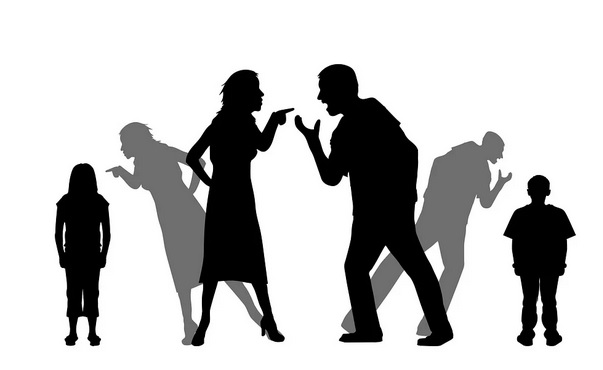
Dealing with Anxiety Triggers: Managing Relationships with Family Members who trigger our own anxiety: Some suggested steps to take and how to communicate when you feel the need to distance yourself or avoid interaction with them.
Living with anxiety can be challenging on its own, but navigating relationships with family members who trigger that anxiety adds an extra layer of complexity. Unlike casual acquaintances or coworkers, family members are often deeply integrated into your life, making avoidance more difficult and potentially damaging to family bonds. However, there are ways to address these relationships and manage your anxiety while maintaining boundaries and open communication.
This article explores the emotional challenges of interacting with family members who exacerbate anxiety, provides steps to cope, and offers practical advice on how to communicate your needs effectively. Understanding these techniques can help you maintain your mental well-being while minimizing tension within the family.
Understanding How Family Can Trigger Anxiety
Before diving into solutions, it’s essential to identify why family members may provoke feelings of anxiety. These reasons vary greatly depending on personal history, family dynamics, and individual triggers. Some common causes include:
- Unresolved Past Conflicts: Recurring conflicts from the past can leave emotional scars that resurface during interactions.
- Unrealistic Expectations: Families often place expectations on members to behave, achieve, or live up to certain standards, leading to pressure and anxiety.
- Lack of Boundaries: Overly invasive or controlling family members can make one feel suffocated, stripping away a sense of autonomy.
- Emotional Manipulation: Family members who use guilt or emotional manipulation can induce stress and anxiety, creating a toxic atmosphere.
- Family Roles and Dynamics: Traditional family roles or a history of dysfunction may perpetuate toxic dynamics that cause anxiety.
- Frequent Criticism or Judgment: Family members who frequently criticize or judge you can trigger feelings of inadequacy, leading to social anxiety and withdrawal.
Identifying the specific triggers within your family dynamic is crucial. Once you’re aware of these, you can begin addressing them with clear boundaries and communication strategies.
Steps to Take When Dealing with Family-Related Anxiety
When faced with family-induced anxiety, it’s important to approach the situation with care. Rather than impulsively reacting or permanently severing ties, consider these thoughtful steps to manage your mental health and maintain your relationship with your family members:
- Recognize Your Triggers Start by identifying which situations or behaviors from family members trigger your anxiety. Is it certain conversations, comments about your life, or particular family gatherings? Understanding what sets you off can help you take proactive measures to address the issue and plan how to respond before encountering similar situations again.
- Set Healthy Boundaries Once you’ve pinpointed the sources of anxiety, the next step is to set boundaries. Boundaries are crucial for maintaining emotional health, especially with family. Whether it’s limiting the time you spend with them or making certain topics off-limits in conversations, healthy boundaries prevent you from feeling overwhelmed.
For example, if family members often criticize your life choices, politely let them know you won’t entertain discussions on those subjects. You can say, “I appreciate your concern, but I would prefer not to talk about my job or relationships at this time.”
- Limit Exposure to Toxic Situations While it might be impossible to cut off contact with family members completely, reducing your exposure to toxic situations can help. Skip gatherings that make you anxious, or spend less time with people who trigger your anxiety. Focus on protecting your mental health, even if it means saying no to certain events.
- Practice Self-Care Engaging in self-care is crucial to managing anxiety, particularly when dealing with family triggers. This could involve physical activities like yoga or exercise, journaling your emotions, meditating, or simply giving yourself a break from toxic conversations. Self-care isn’t selfish—it’s a necessary part of maintaining your well-being.
- Seek Professional Support If family dynamics are too overwhelming, seeking professional guidance through therapy can be immensely helpful. Therapists can help you process emotions, develop coping strategies, and teach you how to handle difficult family relationships without sacrificing your mental health. Cognitive Behavioral Therapy (CBT) is a particularly effective treatment for anxiety triggered by familial interactions.
Effective Communication Strategies for Setting Boundaries
Communicating your boundaries with family members can be challenging, especially when they are not used to you asserting your needs. Clear, respectful communication is key to maintaining your mental health and preserving family relationships.
- Be Direct and Clear When discussing your boundaries, be as clear as possible. Avoid vague language that could be misinterpreted. For example, instead of saying, “I don’t want to talk about work,” you could say, “I’m currently stressed about work, and I would like to avoid discussing it during family gatherings.”
- Use “I” Statements Frame your concerns using “I” statements, which focus on your feelings rather than placing blame. For example, “I feel anxious when conversations get too heated, and I’d like to change the subject when that happens,” instead of, “You always make me anxious when we argue.” This approach prevents defensiveness and keeps the conversation solution-focused.
- Remain Calm and Respectful Even if the conversation feels tense, try to stay calm and respectful. Losing your temper or reacting with hostility may escalate the situation and reinforce negative family dynamics. Approach the discussion with the goal of resolution, not confrontation.
- Be Consistent with Your Boundaries Once you’ve set a boundary, it’s important to enforce it consistently. Family members may test your limits, but standing firm will show them that you’re serious about protecting your well-being. For example, if you’ve asked them not to bring up a certain topic and they do, gently remind them, “I’ve asked that we don’t discuss this subject.”
- Know When to Walk Away If family members continue to push your boundaries or create anxiety despite your best efforts, it may be necessary to distance yourself temporarily or walk away from the conversation. Protecting your mental health should be your top priority, even if it means stepping away from difficult family interactions.
When Avoiding Interaction is Necessary
There are instances when avoiding or limiting contact with certain family members is necessary to protect your mental health. Some relationships are too toxic or damaging to manage on a day-to-day basis, even with boundaries in place. Here are some situations where avoidance might be a viable option:
- Emotional or Physical Abuse If a family member is emotionally manipulative, verbally abusive, or physically threatening, it’s essential to distance yourself from them. No relationship, family or otherwise, is worth sacrificing your safety or mental well-being.
- Persistent Boundary Violations If you’ve set clear boundaries and they are consistently ignored or violated, it may be time to minimize or avoid contact. Repeated boundary violations demonstrate a lack of respect for your needs and mental health.
- Unwillingness to Compromise Family dynamics are healthiest when there is mutual respect and a willingness to compromise. If a family member refuses to meet you halfway and continues to act in ways that trigger anxiety, limiting interactions may be the best solution for your well-being.
- Toxic Environments If the family environment is consistently toxic—whether due to constant arguing, manipulation, or negativity—consider reducing your exposure to it. Your mental health should come before maintaining obligatory ties to unhealthy family dynamics.
Coping Mechanisms for Anxiety During Family Gatherings
Sometimes, avoiding family gatherings entirely may not be possible or desired. In those cases, it’s important to have coping mechanisms in place to manage your anxiety during interactions with family members who trigger you.
- Have an Exit Plan Before attending a family gathering, establish an exit plan in case things become too overwhelming. This could involve leaving early or taking short breaks to step outside, calm down, and refocus.
- Breathe and Ground Yourself Practice deep breathing or grounding techniques when anxiety starts to rise. Breathing exercises can help slow your heart rate and bring you back to the present moment, keeping anxiety at bay during triggering interactions.
- Focus on Supportive Family Members At family events, try to gravitate towards those who provide comfort and support rather than those who trigger anxiety. Spend your time with people who uplift and encourage you rather than those who make you feel drained.
- Limit Alcohol and Caffeine Both alcohol and caffeine can exacerbate anxiety, making you more susceptible to stress. Limiting your intake of these substances can help keep your anxiety levels manageable during family gatherings.
- Prepare Responses Ahead of Time If you know certain topics or comments will trigger anxiety, plan responses ahead of time. Having pre-prepared statements can help you navigate difficult conversations more smoothly and feel more in control.
Final few words: Managing Family Dynamics and Prioritizing Mental Health
Dealing with anxiety, especially when triggered by close family members, can be a painful and exhausting experience. However, by taking proactive steps—recognizing triggers, setting boundaries, communicating clearly, and prioritizing your well-being—you can manage these relationships in a way that protects your mental health without completely severing ties.
Remember, it’s okay to step back from relationships that negatively impact you. You are not obligated to tolerate behaviors that trigger anxiety, even from family members. By focusing on self-care, boundary setting, and seeking professional support when necessary, you can maintain a healthier and more balanced approach to family dynamics while prioritizing your mental health.

dr.dan
Related Posts
The many faces of anxiety: Does the latter affect more than just the brain? Is it just mental or the physical gets affected? Let’s tackle each spectrum.
Anxiety is a complex condition that impacts more than just the brain, with...
Avoiding these narcissistic parenting styles or your children may follow similar narcissistic behaviors. Some hope in sight.
To prevent your children from adopting narcissistic behaviors, it is crucial...
Here are some simple approach to overcome low Self-Esteem, also called Them-esteem.
The word esteem comes from latin, mean Estimate, allowing others to estimate...
Dealing with Anxiety Triggers: Managing Relationships with Family Members who trigger our own anxiety: Some suggested steps to take and how to communicate when you feel the need to distance yourself or avoid interaction with them.
Living with anxiety can be challenging on its own, but navigating relationships...




